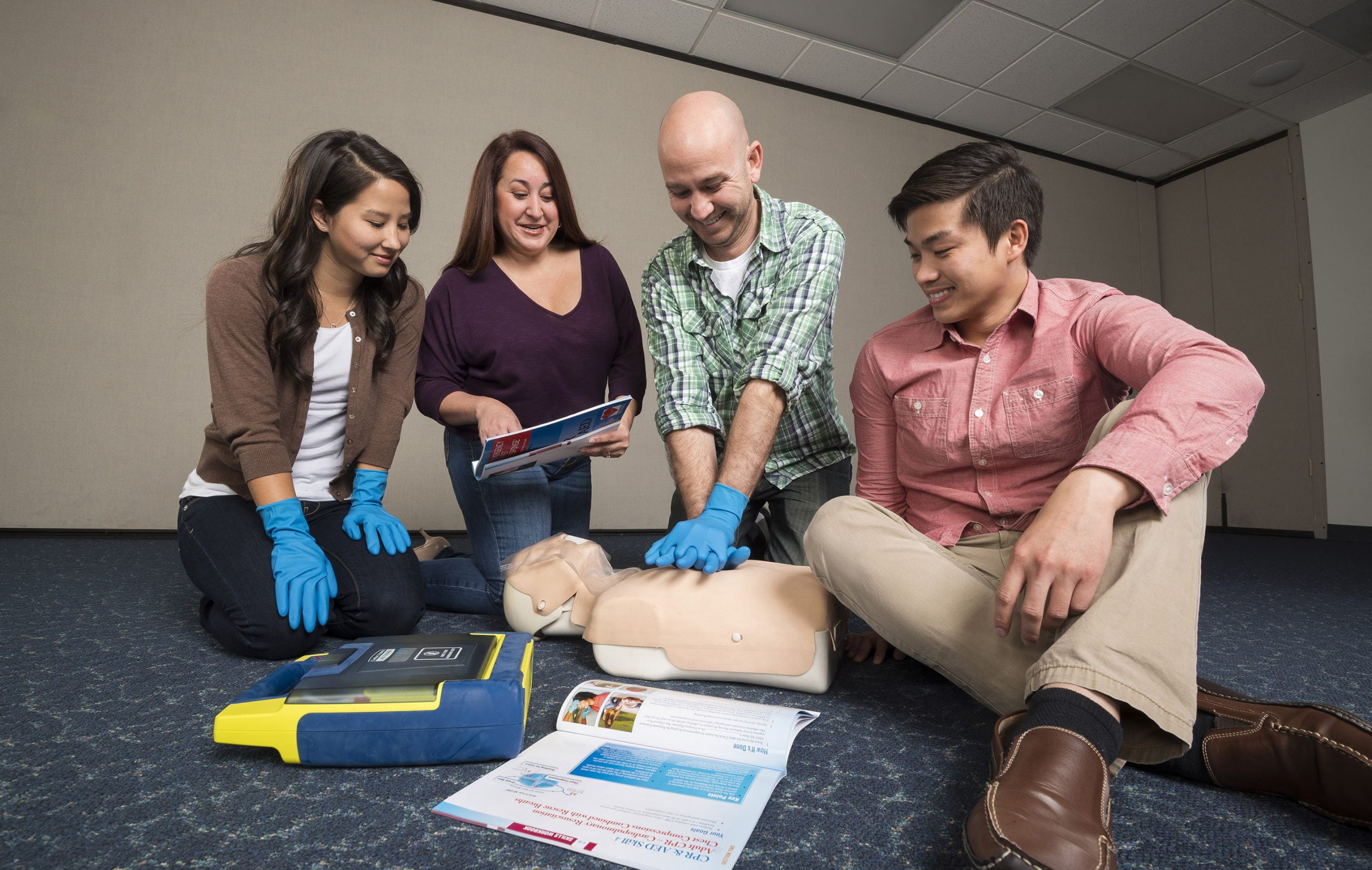PADI® Emergency First Response - EFR
Do you feel you can't intervene in an emergency or do you feel unsafe?
The EFR course will give you the confidence you need in this globally recognized course for emergency assistance by lay rescuers. This course is also a prerequisite for various other training courses such as Rescue Diver and Divemaster.

- Prerequisites
- Materials required
- Price
- Services
- Course schedule
- Course variants
- PADI - Description
- PADI - Academic
This comprehensive practical training is intended for divers and non-divers. It includes first aid and cardiopulmonary resuscitation. It gives you a certification that is recognized worldwide.
During first aid (CPR), you will learn how to help in life-threatening emergencies. The secondary care (first aid) part of the course builds on what you have learned under primary care and teaches you the skills that are important when providing assistance if emergency medical services are delayed or not available at all.
Why should you take part in Emergency First Response?
Accidents and illnesses can occur every day. Some victims need little assistance, while others suffer serious permanent damage without life-saving help. The Emergency First Response course first aid (cardiopulmonary resuscitation) and second aid (first aid) shows you how you can help quickly and effectively in an emergency.
Emergency First Response training not only provides you with the latest knowledge of emergency care by laypersons, but is also extremely flexible. You can prepare at home and then take part in the interesting practical lessons held by specially qualified Emergency First Response instructors.
The Emergency First Response - Secondary Care (First Aid) course covers secondary patient assessment and first aid using the following four skills:
Both courses use a combination of knowledge development, skills development and situational exercises to ensure that you absorb, understand and apply what you have learned.
The Emergency First Response program offers professional, educationally and medically certified CPR and first aid courses that meet international standards, while allowing a high degree of flexibility for regional variations.
Regular course:
In the regular course you take part in the PADI® course together with a group. We will look for dates together when we can meet.
Private course:
There are two or more of you and you want to be on your own. Then a private course with us is just the thing for you. You are together as a group and indicate when the dates suit you and when we meet.
VIP course:
Are you alone and want to be able to schedule your appointments flexibly? The VIP course is just right for you.
The Emergency First Response Program focuses on building the self-confidence of lay helpers and strengthening their willingness to actually take action and provide help in an emergency. Course participants learn easy-to-follow steps for emergency care and practice applying the appropriate skills in a learning environment that is as stress-free as possible. Self-study materials and reference cards are available for all EFR courses to encourage learning and to start learning immediately.
The EFR courses fulfill the CPR and first aid requirements for the PADI Rescue Diver course and all professional PADI levels. Most PADI Instructors are also Emergency First Response Instructors.
The following EFR courses are based on internationally recognized medical guidelines for emergency care.
Source: PADI.com
- Primary Care - Cardiopulmonary Resuscitation (CPR) - In this course you will learn the steps and techniques to provide appropriate assistance in life-threatening emergencies. You will learn and practice eight skills in the course to help patients who are not breathing, have no heartbeat, may have suffered a spinal injury, may be in shock or have severe bleeding. In particular, you will learn the technique of cardiopulmonary resuscitation (CPR) and how to continuously monitor a patient's condition to give them every possible chance of survival while waiting for emergency medical assistance to arrive (paramedics, emergency doctor, etc.).
- Secondary Care (First Aid) - Many medical conditions are not life-threatening, the arrival of emergency medical help is sometimes delayed or such help is not available at all. This course therefore teaches you how to administer first aid to make pain more bearable and reduce the risk of further injury. In this course, you will learn how to assess various injuries and illnesses and practise applying bandages and splints.
- Care for Children - In this course, participants learn and practice skills that will enable them to help children and young people in a medical emergency. The course is aimed at people who have to deal with children in their daily work or who are likely to be called to help in emergencies involving children and young people. This course is often integrated into the EFR Primary Care and Secondary Care courses.
- CPR & AED - This course focuses on training in cardiopulmonary resuscitation (CPR) and teaching participants how to use an automated external defibrillator (AED). If there are workplace regulations or legal requirements for such training, the CPR & AED course can be used for this purpose. This course is often integrated into First Aid at Work programs.
- First Aid at Work
- In some countries, such as the UK, Australia and Canada, there are legal requirements for companies to provide CPR and First Aid training for their employees. The First Aid at Work program has been developed specifically for these countries and includes additional topics and skills to comply with such regulations; of course, the EFR principle of simple learning is also applied here.
- EFR Refresher
- It is a good idea for emergency responders to refresh their CPR and First Aid skills every 24 months and the EFR Refresher program has been developed to do just that. The focus is only on the most important skills and participation ensures that you stay up-to-date and are ready to help should this become necessary.
Source: PADI.com
